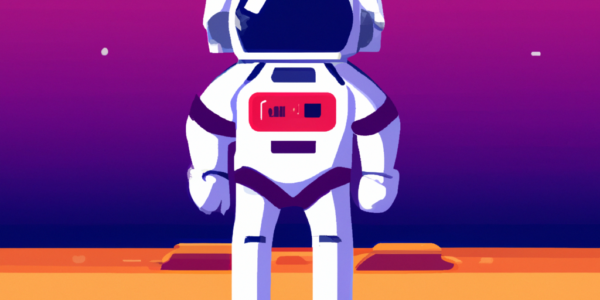Robots have taken on plenty of jobs that humans can also do, and robots have certainly gone to space. So should robots take on the jobs of astronauts? Britain’s Astronomer Royal thinks so.
“I’m sceptical about the idea of a human space flight being worthwhile,” he said on a government podcast. Martin Rees, the current Astronomer Royal, went on to say that space travel is very high risk and should be undertaken by people prepared to take the risk and pay for it themselves.
“We should not have publicly funded programmes to send people to the moon, still less to Mars,” said Rees. “It’s hugely risky, hugely expensive, and there’s no practical or scientific benefit to sending humans. It’s a pretty bad bargain for the taxpayer.”
Adventurers and explorers
Britain has a long history of privately funded exploration, from Henry Hudson to Ernest Shackleton. Rees has written a book suggesting that this should be the model for future space exploration. The End of Astronauts: Why Robots Are the Future of Exploration includes plenty of interesting ideas.
“The pioneer settlers – ill-adapted to their new habitats – will have a more compelling incentive than those of us on Earth to literally redesign themselves,” he wrote. “They’ll harness the super-powerful genetic and cyborg technologies that will be developed in coming decades. These techniques will be, one hopes, heavily regulated on Earth – but those on Mars will be far beyond the clutches of the regulators. We should wish them luck in modifying their progeny to adapt to alien environments. This might be the first step towards divergence into a new species. It’s these space-faring adventurers, not those of us contentedly adapted to life on Earth, who will spearhead the post-human era. It’s perhaps in deep space – not on Earth, or even on Mars – that non-biological ‘brains’ may develop powers that humans can’t even imagine.”
He also suggests that the inevitable deaths will feel less like national tragedies if few quit thinking of space travel as an extension of commercial flights. The level of risk is more than professional astronauts should be asked to undertake and more than any government should ask of its citizens.
Government involvement
If wild adventures and exploration should be left to daring billionaires, what kind of space exploration should NASA be considering? Here’s where robots come in.
Robots can be built and launched for a fraction of the cost of human missions. This allows for more frequent and diverse missions to explore a wider range of celestial bodies. Robots can withstand extreme conditions and radiation levels that would be fatal to humans. They can also be designed for specific tasks, allowing for highly specialized missions.
Robots can pave the way for future human missions by scouting locations, mapping terrain, and identifying potential hazards. They should — in the future, at least — be able to build living quarters and research stations in preparation for those brave explorers Rees imagines.
Current robots lack the adaptability, problem-solving skills, and capacity for independent discovery that humans possess. But strides in AI may increase the collaborative capacity of robots in the foreseeable future.
The most likely scenario is a collaborative approach, with humans and robots working together. Robots can perform the initial reconnaissance, data collection, and potentially resource gathering, while humans can follow up for more in-depth exploration, scientific research, and potentially establishing a permanent human presence.
